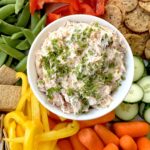If your baby is formula-feeding, you may be coming up against the current shortage in powdered formula.
Need help paying for formula?
Your pediatrician can suggest resources to help make buying formula less expensive. You might qualify for benefits such as WIC, SNAP or TANF — programs that provide families with vouchers, Electronic Benefits Transfer (EBT), or cash for buying formula.
Families that don’t qualify for benefits may be able to get formula and other infant supplies through local food banks including the Food Bank of Delaware. Also visit FeedingAmerica.org or call 211 for community services near you.
Visit dethrives.com for updated information.
The COVID-19 pandemic has caused supply chain and staffing issues, and a recent recall of baby formula has added to the problem.
But, with flexibility and support from their pediatrician, parents can find alternatives and rest easy that their babies are being well-nourished.
Here are some tips on how to navigate the baby formula shortage.
1. Talk with your pediatrician.
In many cases, babies can switch to a different formula if the formula your baby is on is not available. We recommend that you check with your baby’s pediatrician before making a change.
If your baby requires a specialized formula, your pediatrician also can help you find a similar formula that will meet your baby’s medical needs.
Click here to find a ChristianaCare pediatrician near you.
2. Consider a new baby formula brand or type.
Although it’s hard to think about changing something that’s working, it’s important to know that there are generally only mild differences among brands of baby formula. Even if your baby has a sensitivity, there are many options.
Talk with your baby’s pediatrician about alternatives. Among them:
- Sticking with the same brand after you confirm that it’s not recalled.
- Trying a similar version of the same brand.
- Trying a similar version of a different brand.
- Trying the generic version of the brand-name kind you normally use.
- Switching to the liquid or ready-made version of your usual formula.
When possible, shop around or online through well-recognized companies (not auction sites or online marketplaces that can’t guarantee safe products). Also, connect with other parents who might have extra formula or ideas on where to get some.
3. Know the safe options for feeding your baby.
When you have a hungry, crying baby, it’s easy to feel like you need to do whatever it takes to soothe your child. However, for your baby’s health and safety:
ChristianaCare Resources to Support Families
Peer Counselors for WIC-eligible mothers – 302-301-4151. Daily, including holidays, 8 a.m.-8 p.m.
Parent Education and Breastfeeding Support – 302-301-3360. Monday-Friday, 8 a.m.-8 p.m.; Saturday, Sunday and holidays, 8 a.m.-4 p.m.
Use only FDA-approved formula. The FDA regulates commercial formulas for safety, both the ingredients and the manufacturing process. There’s no way to guarantee the purity and safety of store-bought ingredients and the multi-step process that is often taken to make homemade formula opens the final product up to bacterial contamination. Formulas from overseas, including Europe, are held to different standards and may not be FDA-approved.
Do not use baby formula substitutes. Until age 1, the only type of milk your baby should drink is formula or breast milk. Cow’s milk, goat’s milk, almond milk, soy milk, hemp milk and other nondairy varieties are not safe for infants.
Never make or use homemade baby formula. The American Academy of Pediatrics and the Food and Drug Administration both caution parents against making their own baby formula. Infants have very specific nutritional needs, which require a very specific balance of hydration and nutritional density. Commercially manufactured infant formulas are carefully regulated to ensure that they deliver a specific balance of vitamins, minerals, protein, fats and carbohydrates, mimicking what is found in breast milk.
Never dilute (or water down) baby formula. Always follow the recommended recipe for making powdered formula. Extra water can be dangerous to babies. Diluting formula or breast milk can interfere with an infant’s ability to absorb nutrients. This can cause seizures, brain damage and — in extreme cases — death.
Continue feeding with formula until your baby turns 1 year old, but if your child is over six months you can start to supplement nutrition with some solids. A good place to start is with fortified cereal, mashed bananas or avocado, or even well-cooked and puréed meat, poultry and beans. Click here for more on starting solid foods.
As new parents, you don’t have to go it alone. Contact your pediatrician or the community resources listed in this article for assistance.



